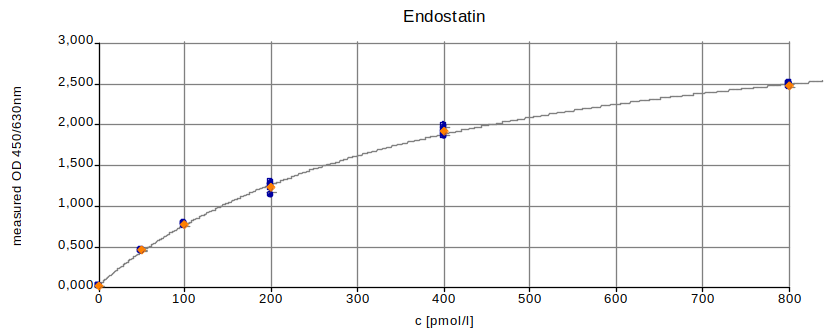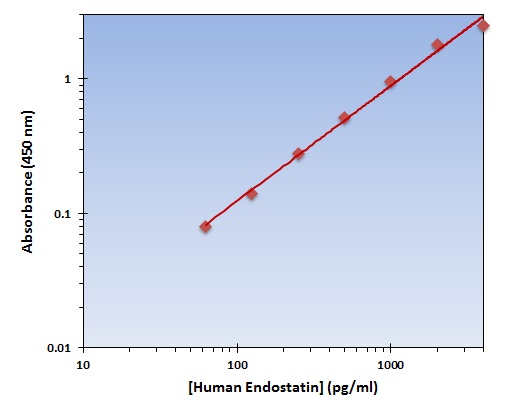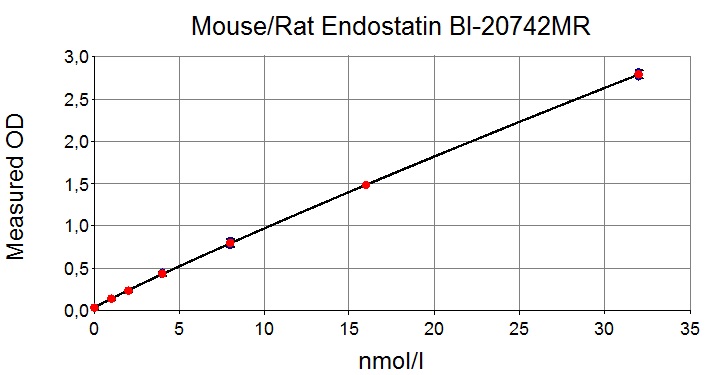
The figure shows a typical standard curve for the human Endostatin ELISA. The immunoassay is calibrated against recombinant human Endostatin.
Endostatin ELISA
BI-20742
Assay Sample Typeserum, EDTA plasma, citrate plasma, heparın plasma, urine, cell culture supernatant
Product group Assays
Overview
- SupplierBiomedica
- Product NameEndostatin ELISA
- Delivery Days Customer7
- ApplicationsELISA
- Applications SupplierELISA
- Assay Detection Range25-800 pmol/l
- Assay Precisionintra-assay: 6%, inter-assay: 5%
- Assay Sample Typeserum, EDTA plasma, citrate plasma, heparın plasma, urine, cell culture supernatant
- Assay Sensitivity4 pmol/l
- Assay Test PrincipleSandwich ELISA
- Assay Time4.5h
- CertificationResearch Use Only
- Scientific DescriptionProduct Characteristics: The Biomedica human Endostatin Sandwich ELISA kit is a test that is intended for the quantitative measurement of Endostatin levels in human serum, EDTA plasma, heparin plasma, citrate plasma, cell culture supernatant and urine samples. Target Information: Endostatin, a 20-kDa C-terminal proteolytic fragment of collagen XVIII, is an endogenous angiogenesis inhibitor localized in the vascular basement membrane in various organs. The biological functions of the endostatin-network involve SPARC, thrombospondin-1, glycosaminoglycans, collagens, and integrins. Endostatin is expressed during the progression of renal fibrosis in tubular cells of injured tissue. In renal microvascular disease, observed in late stages of patients with chronic kidney disease, increased endostatin levels are possibly the consequence of enhanced extracellular matrix degradation. Thus endostatin may become an important marker for progressive microvascular renal disease in patients with chronic kidney disease. Endostatin levels in blood are also likely to increase in patients with other microvascular tissue injuries, including atherosclerosis, myocardial and brain ischemia. In ischemic stroke patients, high endostatin plasma levels predict a worse long-term clinical outcome.
- Storage Instruction2-8°C
- UNSPSC41116133






